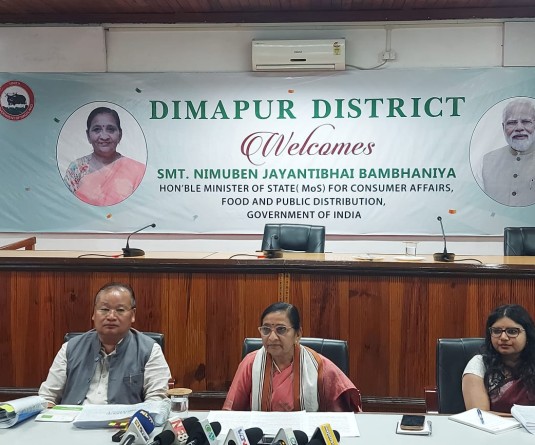
Dimapur, October 10 (MExN): The Rights and Risks Analysis Group (RRAG) has accused the interim Bangladeshi government, led by Nobel laureate Mohammed Yunus, of excluding indigenous people from the Chittagong Hill Tracts (CHT) and religious minorities from the country's constitutional reform process. This claim was made during a report release titled, “Conflicts In Bangladesh and Myanmar: The Threat To Regional Peace And Security,” which RRAG presented to New Delhi's diplomatic community.
Suhas Chakma, Director of RRAG, highlighted the alleged exclusion, revealing that the Bangladeshi government announced a nine-member Constitution Reform Commission on October 6, 2024, but did not include representatives from the CHT’s indigenous tribes or religious minorities. Chakma noted that this commission includes only one woman, Professor Sumaiya Khair, which he claimed violates the Jatiya Sangsad (Reserved Women Seats) Election Act of 2004, which reserves seats for women in parliament.
“Dr. Mohammed Yunus has shown a worldview that excludes vulnerable communities,” Chakma said. “He presents a soft face of Islamism in the country, a form of exclusion not seen under past leaders such as former President H.M Ershad or former Prime Ministers Begum Khaleda Zia and Sheikh Hasina.”
The RRAG report also documented alleged human rights violations in the CHT under Yunus’s government. From September 19 to October 1, 2024, RRAG claims that organized assaults by Bangladeshi military personnel and illegal settlers targeted indigenous communities in the districts of Dighinala, Khagrachari, and Rangamati. These attacks reportedly led to the destruction of 142 homes, shops, and Buddhist temples, and left 75 indigenous individuals injured. The organization contends that these actions have effectively barred indigenous communities from participating in the region's economic activities, as they face segregation and communal tensions.
The briefing was attended by diplomats from countries including Sri Lanka, Canada, Switzerland, and Russia, as well as representatives from international organizations. Former Indian diplomats and representatives from the Carnegie Endowment for International Peace also participated.
The RRAG called upon the diplomatic community to advocate for the inclusion of indigenous groups in Bangladesh’s constitutional reform process, recognition of minority rights, and the establishment of an Office of the United Nations High Commissioner for Human Rights in Bangladesh to investigate these alleged human rights violations.





